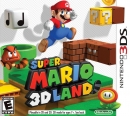As we continue to diversify what we call RPG's , RPG's are becomming less and less what we would have classically called them. So what would a real Wii RPG look like, would it be turned based , real time or like Zelda! What makes an RPG an RPG is it only that your playing the role of a character or is it something to do with the gameplay!

In turn based gameplay you are usually wondering around in a grassy forest or some other lush enviroment when a creature attacks you this enters a battle segment in which you must take turns attacking the opponent! This type of gameplay allows you to take time and strategize your next move plan out your strategy and take down the enemy in a timely fashion.

Real-Time RPG's are often seen in MMORPG's , I'm not sure if I have the definition entirely right but a real-time RPG is a game where you do not actually enter a battle sequince instead you attack and do battle in real time. Some games that are Real-Time RPG's would be WorldOfWarcraft and FinalFantasy:ChrystalChronicles. Many people like this type of gameplay because it enables them to make sudden moves and button mash. Rather then taking turns you can dodge enemies attacks and attack much more often.
MMORPG's tend to be real time because lets face it theirs a limit to the amount of people involved in a single battle if you go turn based (8 probubly). Thats why Real-Time is often chosen as the format of choice for online RPG's!

I didn't know how you would classify LegendOf Zelda style RPG's so I have classified them as Adventure RPG's. Titles like Legend Of Zelda, Dragon's Curse , StarTropics are all adventure RPG's. Action RPG's are often known for having health hearts in the corner's of the screen to measure your character's health and sometimes magic.
So what makes an RPG an RPG, what makes an RPG anything more then a hack and slash title, adventure game or simply an MMO. What unique traits do RPG's have and which of the three main types of RPG's is the best suited for the Wii/360/PS3. Are certain types of RPG's tailored for different platforms. (Example is Pokemon (Turn Based) a better type of RPG for a handheld while maybe Fable (Real-Time) better suited for a home consoe. Which type is your favorite or do you have one? And when does a adventure RPG simply become a hack and slash title? Where do you draw the line on whats called an RPG?
Discuss!
-JC7
"In God We Trust - In Games We Play " - Joel Reimer























 PSN ID: Staticneuron
Gamertag: Staticneuron
Wii Code: Static Wii - 3055 0871 5802 1723
PSN ID: Staticneuron
Gamertag: Staticneuron
Wii Code: Static Wii - 3055 0871 5802 1723



















